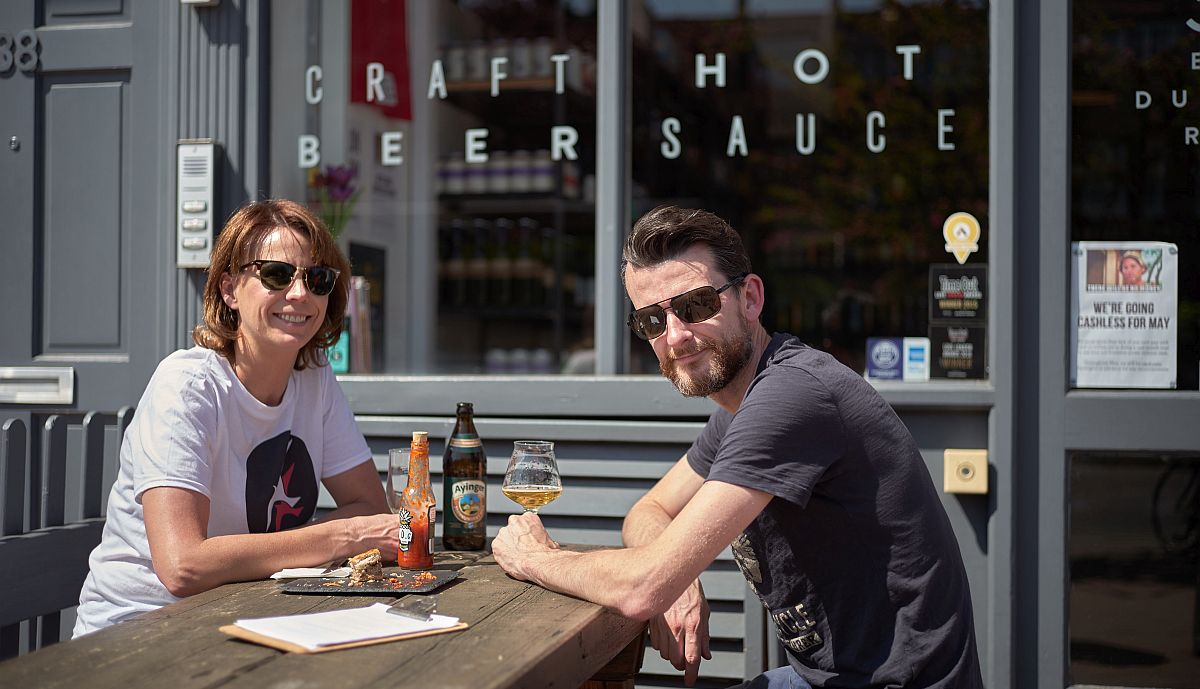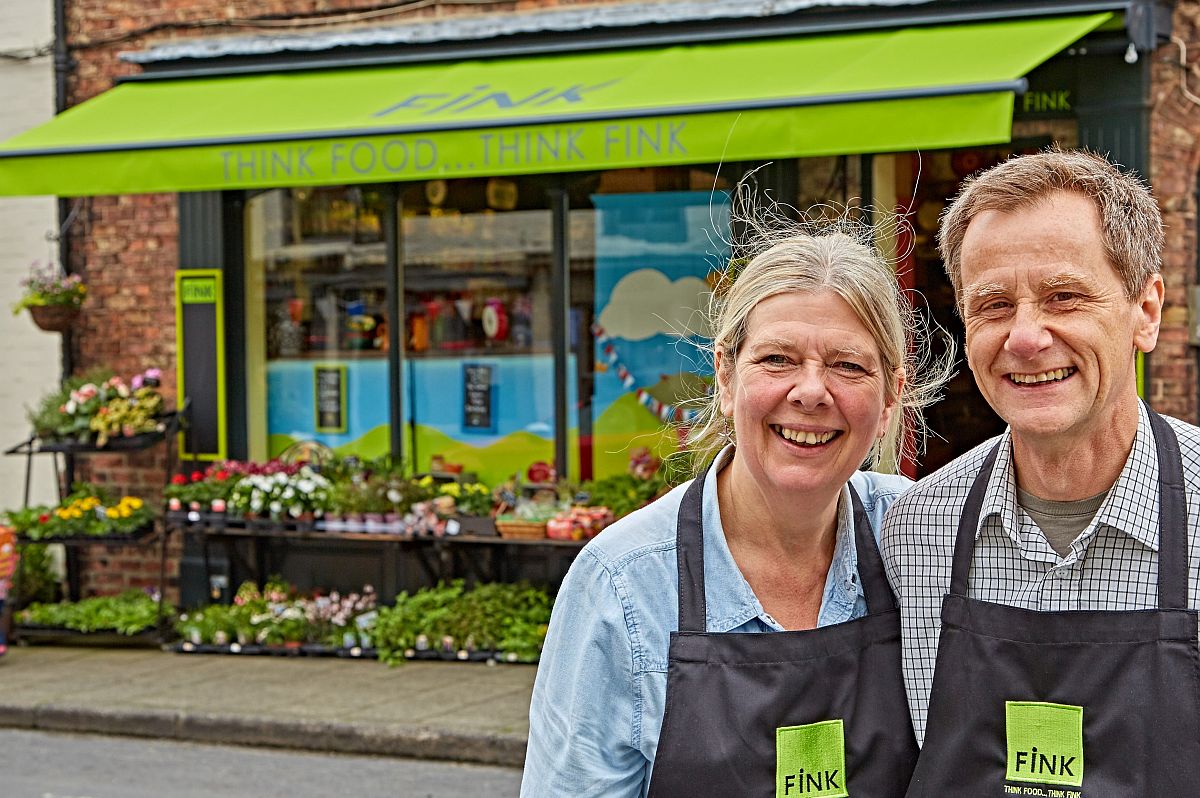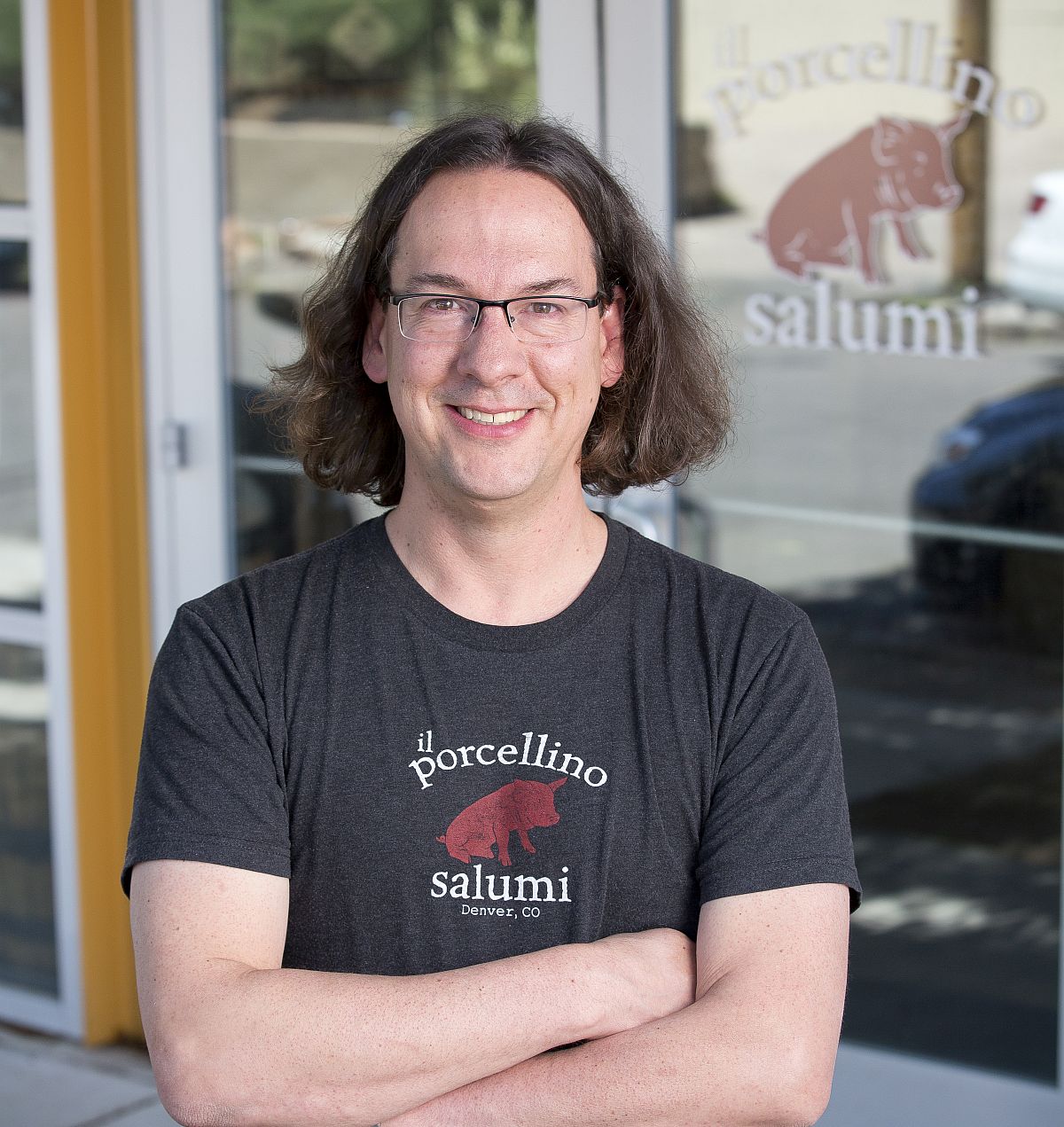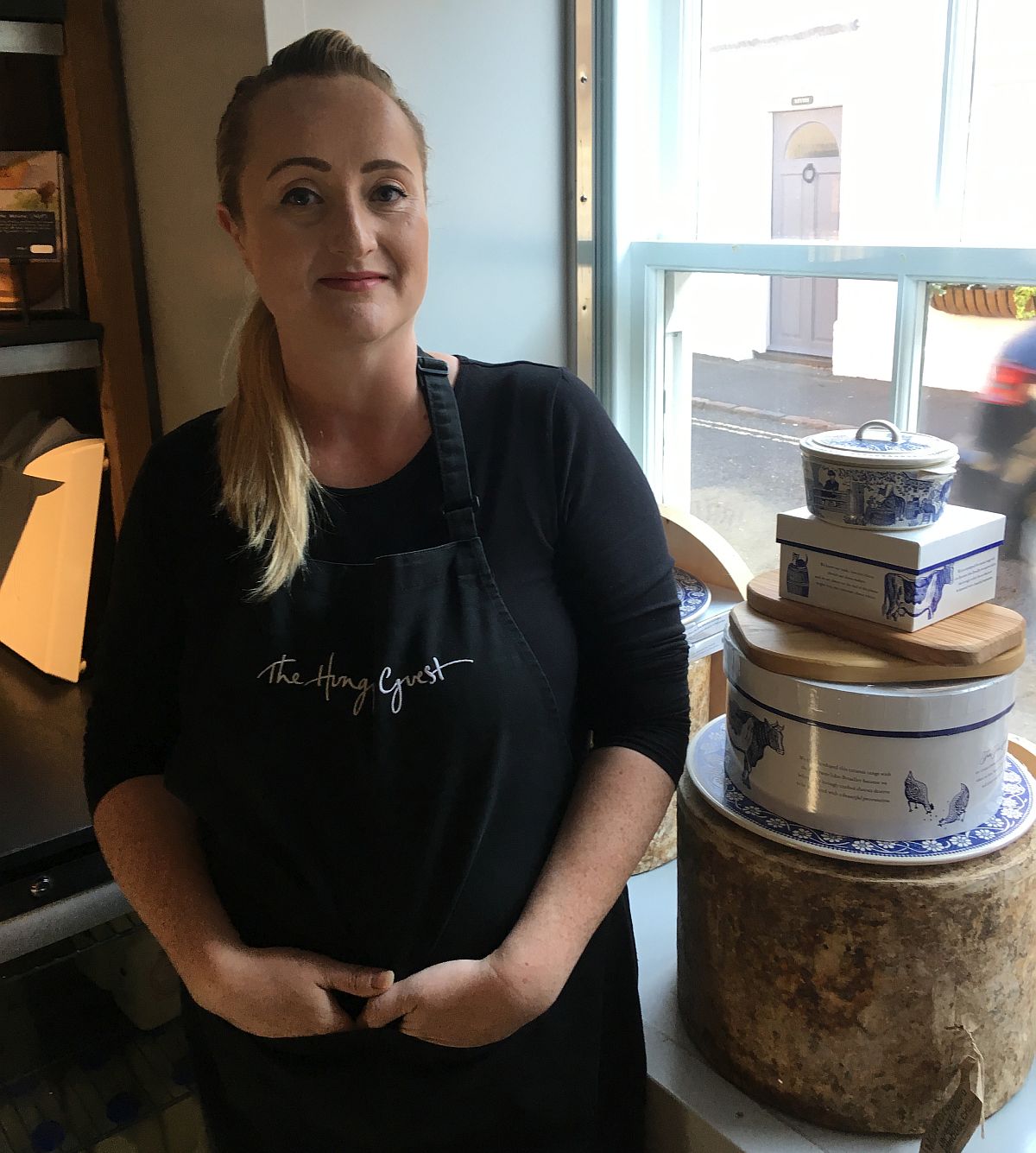Free digital copy
Get Speciality Food magazine delivered to your inbox FREE
Get your free copy

“It’s really important for us to have the latest and greatest beers or customers will look elsewhere”
Hop Burns & Black has built an esteemed reputation by supplying the public with quality craft beer and hot sauce. Jen Ferguson, co-owner, discusses the importance of savvy sourcing:
“The craft beer retail sector is increasingly competitive – it seems like every other week a new craft beer shop opens up and supermarkets are increasingly getting in on the act, too. This means there is a huge emphasis for us to source new and rare products, with many drinkers not wanting to drink the same beer twice.
“A lot of things come into play when choosing new lines for our two shops. The fast-moving world of craft beer means it’s really important for us to have the latest and greatest beers or customers will look elsewhere, so every week we bring in between 20-50 new products. We find out about these in numerous ways – we keep our ear close to the ground on social media to see what people are raving about or producers are boasting about, and our customers are always quick to tell us about new things we should be getting in. We know our customers’ tastes very well after nearly four years, so we know which producers we should be keeping an eye on for new releases. Obviously we do a lot of tasting and research ourselves, too – it’s one of the perks or pitfalls of the job!
“It’s really important that we trust the brewery when stocking their products – it has to have a record of quality and consistency. We don’t get to try every beer before we buy it in, so dependability is key. We know what’s going to sell well for us – which styles and breweries are popular with our customers – so that informs our weekly purchases. We also have an independents-only rule – we won’t stock beer from multinational conglomerates such as AB InBev or Heineken.
“We take a very similar approach when it comes to our hot sauces. We love sauces from small, local saucemakers – people taking an artisan approach, such as the Peckham Sauce Co. and Barnfather’s. We also try to avoid too many novelty sauces – the hot sauce market is much more sophisticated these days.
“When it comes to knowing what will go down well with our customers, we use instinct supported by data. We’ve been doing this for nearly four years now, so we have a good read on what people will like. Vend, our point-of-sale system, allows us to drill down into any aspect of our inventory to see which products, styles or brands have been selling well (or not), and base our weekly purchasing on that. We pride ourselves on extremely low stock wastage – we rarely see products go to date.”

“Word-of-mouth suggestions are a great starter”
Fink in Boroughbridge, Harrogate, opened its doors two years ago and has garnered awards and acclaim ever since. Co-owner, Hugh Fink, details his criteria for stocking products:
“Word-of-mouth suggestions are a great starter. Whether a customer suggests a product or asks whether “something like…” it often initiates a search. We also use some great wholesalers and their existing listings are a great source for products. We often also give a call to our most specialist suppliers – they can often come up with the goods or will be able to suggest a source. If we draw a blank within our existing network, we’ll revert to internet searches.
“When it comes to trade shows, we make a point of visiting the Harrogate Fine Food Show and the Farm Shop & Deli Show – we see these as really important in maintaining contact with existing suppliers, chatting to potential new ones, identifying trends and picking up ideas. We sample a lot of products, but the decision as to whether to stock them is the result of a process of identifying their appeal to our customer base, and practical issues like price, shelf life, availability and minimum order size.
“We love classical products which are beautifully and simply presented with credible provenance. The provenance issue is much more important than just being local, and while we promote produce from our home county of Yorkshire, our stock covers a broad range of high quality products from around the world. But, sometimes, the reality is we just immediately know we want to stock a product – the love at first sight scenario. They often turn out to be our most successful ranges.”

“Products being made primarily with machinery in large batches aren’t going to have the attention-to-detail that most retailers are looking for”
Award-winning charcuterie expert and owner of Denver-based deli and salumeria Il Porcellino, Bill Miner, walks us through curating cured meats and the American charcuterie scene:
“Retailers should be looking for how the charcuterie is made, where it’s processed and how big the company is. There are many factors that go into making a quality salami. Small batches of the production lends to a more artisanal, hands-on product. Products being made primarily with machinery in large batches aren’t going to have the attention-to-detail that most retailers are looking for. We hand-trim all of our raw pork through a process called seam butchery, removing any sinew and unwanted silver skin in the pork. This ensures that there are no pieces that get stuck in your teeth while eating the finished product.
“Provenance isn’t as important as using heritage breed pigs which are raised properly. That being said, we source our meat locally, because Colorado has some fantastic farms that live up to the standards we’re seeking. Animals that are raised on-pasture, allowed to roam freely and graze, are happy pigs. They are fed a vegetarian diet with non-GMO grains and legumes. A higher quality raw product definitely lends itself to a higher quality finished product.
“An example of a great charcuterie selection must include one small-gauge salami that’s packed full of flavour. As well as one large-gauge, sliceable and spicy salami, something different like a beef bresaola or lamb proscuitto, a succulent whole-muscle pork product like coppa or lonza with plenty of fat in it, then maybe a nice pâté or rillette. And, of course, some type of smoked sausage, like Toulouse.
“Wine and beer obviously pair well with charcuterie. But so do some higher-end spirits, such as artisanal gin or small-batch tequila, too.
“The business of American charcuterie is experiencing a boom much like cheesemaking did 25 years ago. There’s a fair amount of artisanal salumi and charcuterie makers in America, and their businesses are growing rapidly. We went from having three full-time employees in February to now eight full-time and five part-time – that’s pretty significant growth in six months!”

“Our customers are our main source of inspiration”
Cheese is big business for The Hungry Guest Shop in Petworth, Sussex, which was recently voted Best Independent Retailer in London and the South East in the Great British Food Awards. Vicki Hitchcock, manager, explains how her team ensures that they are only stocking the best:
“We work with some individual producers – particularly of local cheeses – and we’re blessed to be able to source products with tremendous variety and quality. Also, we do business with some wholesalers who know we ensure we have the very best in terms of provenance and authenticity, which is what our customers expect. We love to support local producers and to combine that with the very best the rest of the world has to offer. A new product needs to be better than whatever it replaces, and we think everything on our shelves has thoroughly earned the right to be there!
“We have a number of real cheese enthusiasts in the team, and we’re always on the lookout for things we haven’t tried before, but honestly, our customers are our main source of inspiration. They’re very knowledgeable and specific with their requests, which is great as it keeps us on our toes and trying new cheeses!
“We really don’t get too much time to be at trade shows unfortunately, and when we do get out it tends to be to the consumer shows, such as BBC Good Food. As we have a full-offer grocery shop, so it’s important that we’re up with the latest consumer trends across all categories.”